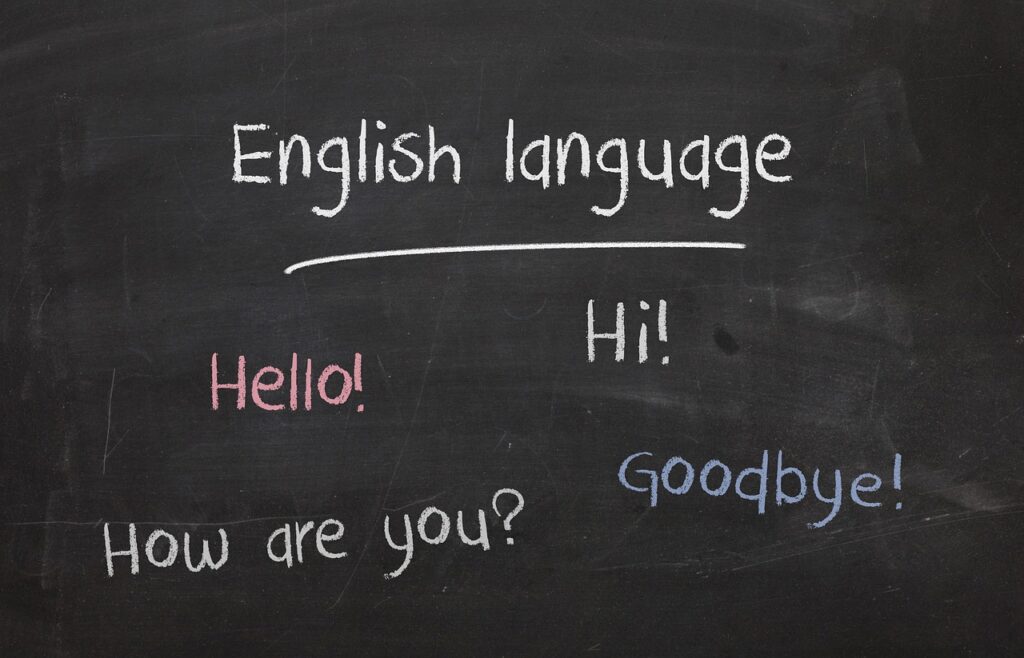Have you ever thought about how we are controlled by the very words we use? No, seriously—what if I told you that the English language isn’t just a tool for conversation, but a quiet, invisible force shaping everything from our thoughts to our political views? It might sound dramatic, but stay with me.
From “LOL” to “Hustle”: The Language of the New World
Let’s start with something that’s hit close to home for everyone: digital language. A decade ago, no one knew what “meme” meant outside of a niche internet world. Today? It’s the currency of online communication.
And how about “hustle”? It used to mean working hard. Now? It’s a lifestyle. It’s everywhere, in motivational quotes and self-help books.
“Don’t stop hustling” isn’t just advice—it’s a mantra. The word “hustle” has become so intertwined with success culture that it’s practically a movement.
We live in an age where words—simple words—are redefining our relationship with work, success, and even identity. “Side hustle” isn’t just a buzzword; it’s an entire economic philosophy.
You can’t scroll through your Instagram feed without seeing someone touting their latest “hustle” to make it big.
And what’s the result? A generation of people who believe they’re not just employees, but “entrepreneurs,” pushing themselves to the limit to chase a dream that’s been rebranded as “necessary.” It’s all because of the power of a single word.
Words That Divide: The “Us vs. Them” Effect
And then we have the darker side of language—the words that separate us. Think about the term “fake news.” It’s not just a phrase anymore; it’s a weapon. Just hearing it makes you question everything. News outlets, social media, politicians—everyone has started using it.
The power of “fake news” isn’t just in what it means, but in how it makes us feel. The minute you label something “fake,” it’s not just about the story—it’s about questioning the credibility of anyone associated with it.
It creates a divide. Us vs. them. Truth vs. lies. And once we’re on opposite sides of a word like “fake,” we stop listening to each other. Language has made enemies of us all.
But this goes beyond political rhetoric. Think about how “woke” has been turned from a badge of awareness into an insult.
Originally a term for heightened social awareness, now it’s used to dismiss people trying to make real change. In just a few years, “woke” has gone from a statement of progressive ideals to a loaded term that brings eye-rolls and arguments.
This is the power of words: they can reshape entire social movements, flip the script, and hijack your perception—all with just a few letters strung together.
The Unexpected Influence of Everyday Words
Let’s get a little personal: have you ever thought about the words you use to talk to yourself? If you start your day by saying, “I’m so tired,” your brain immediately believes it. Or “I’m just not good at this”—guess what?
You’ll probably fail before you even start. Words are powerful, but they can be insidious too. We’ve all heard the cliché “words have power,” but it’s not just some motivational quote—it’s science.
The words you speak to yourself daily impact your mindset, which in turn shapes your outcomes. That little phrase “I can’t” has no business in your vocabulary if you want to change the narrative of your life.
The Future of Words: Our Ever-Changing Language
Let’s talk about the future for a second. We’re living in an era of word inflation. Every year, new words are added to the dictionary.
But just as quickly, some old ones fade into obscurity. Remember when we said “lol” instead of laughing out loud? Now it’s all about “crying emoji” or “dead” (as in, “I’m dead from laughter”).
The language of today isn’t just changing—it’s evolving faster than we can keep up with. New words are being born daily, especially in online spaces where culture shifts at lightning speed.
“Binge-watching,” “ghosting,” “cancel culture”—none of these words existed in mainstream culture a generation ago.
But here’s the thing: these words are more than words. They’re changing how we behave, how we connect, and how we see the world. “Swipe left,” for instance, is no longer just something you do on Tinder.
It’s a phrase that reflects an entire social behavior, a shorthand for rejecting not just potential partners but opportunities in life.
So, What’s the Bottom Line?
Words are everywhere. They define the way we express ourselves and make sense of the world around us.
But here’s the kicker: in many ways, we don’t have control over them. Words, from the “hustle” mentality to the divisive power of “fake news,” are controlling us, shaping our beliefs, and defining our reality.
And while it’s easy to think of language as just a tool for conversation, it’s clear that English (and all languages, really) are living organisms, adapting to new realities and driving change—sometimes without us even noticing.
Next time you type out a tweet, send a message, or say something to yourself in the mirror, ask yourself: Am I being shaped by this word, or am I the one shaping it?



